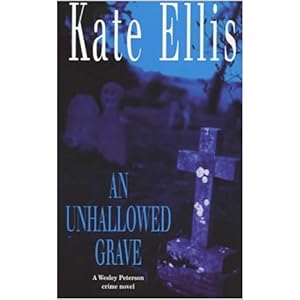Edition: Piatkus, 2000
Review number: 1003
There are, perhaps, a rather limited number of ways to connect archaeology to a murder mystery. You could have archaeologists discover a modern body, or a member of a dig could be killed, or be an investigator, or they could find an old body whose history parallels a modern crime, or they could be in the area where a completely independent crime takes place. I have read novels using all the first four ideas, if not the last. The way that Ellis' series of detective novels is set up means that they will quickly become repetitive, and she is not quite a good enough writer to ring the changes on the details.
This particular novel uses the fourth scenario, along with the use of the third, which is generic to the series, having as investigator an archaeologist turned policeman. In a Devon village, a woman is found dead, an apparent suicide hanging from the boughs of a yew tree in the churchyard. It is quickly established, however, that she had been at least partially strangled before the hanging - hands leaving a different pattern of marks on the neck from a rope. At about the same time, the skeleton of a medieval woman is found in a rescue dig at a potential housing development on the edge of the village; she had been rather more professionally hanged.
An Unhallowed Grave is enjoyable, even if the reader never loses the feeling that it is far fetched as the parallels between events now and in the fifteenth century are developed.
Subscribe to:
Post Comments (Atom)




No comments:
Post a Comment